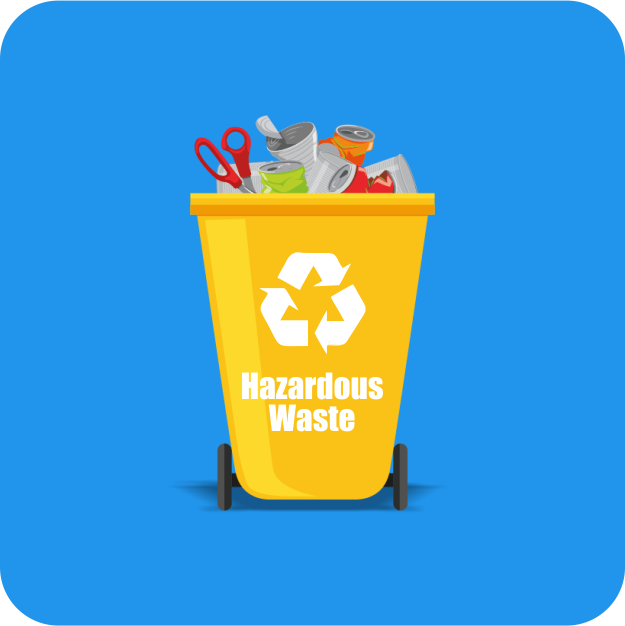Simply defined, a hazardous waste is a waste with properties that make it dangerous or capable of having a harmful effect on human health or the environment. Hazardous waste is generated from many sources, ranging from industrial manufacturing process wastes to batteries and may come in many forms, including liquids, solids gases, and sludges.
Toxic waste can harm people, animals, and plants, whether it ends up in the ground, in streams, or even in the air. Some toxins, such as mercury and lead, persist in the environment for many years and accumulate over time. Humans or wildlife often absorb these toxic substances when they eat fish or other prey.
Improper waste disposal is a contributor to excess gases entering the atmosphere and causing these problems. The breakdown of the waste releases gases like methane, which is a major factor in global climate change.

